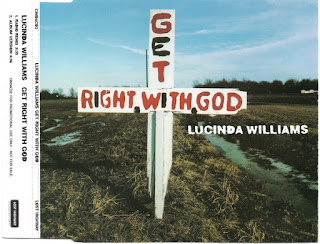CHRISTMAS EVE - C - 18 LUKE 2. 1-20
I have been fortunate to
travel to the Holy Land twice. Both times, I
visited the Church of the Holy Nativity, which is located in Palestine Israel
from Palestine Bethlehem
I have often thought about
the irony in that each time I read Luke’s account of the birth of Christ,
especially the angel’s message delivered to the shepherds: “Do not be afraid,
for behold, I bring you good tidings of great joy which will be to ALL people.”
The very people, God’s
people, Messiah first came to save are the very people who today cannot enter
the city of the Savior’s birth. It is controlled by Palestinian Christians, a
fact that is often overlooked by the media when reporting the continuing
dispute over that particular territory.
In addition, the Old City of
Jerusalem is itself divided into ethnic quarters. There is the Jewish quarter,
the Arab quarter, the Christian quarter, etc. The good news of a great joy,
which the angels proclaimed has come to All the people, does not seem to
resonate in our world today, not even in the world into which Jesus was born.
Divisions of religion, politics, and ethnicity
exist in every corner of our world. Yet thousands upon thousands, from all
corners of this same world continue to come to the city of David
Perhaps some of you have been
there as well. If not, when you go there, you will enter the church the
crusaders built over the spot where the manger is said to have been. That spot
is found in the floor of the undercroft beneath the high altar and is marked
today by a star embedded in the floor.
To get there one has to queue
up and take one’s turn descending a narrow stairway that leads to the star.
Once there you are only given a moment to reflect upon the significance of that
sacred space before being “moved on” by a heavily armed soldier. In retrospect
I have often thought it must have been something like that the night Jesus was
born.
Thousands were in the little
town of Bethlehem
If they did notice, they did
not stop to reflect on what it might mean they were too busy with the business
at hand. Besides that, they would have probably been “moved on” by soldiers as
well.
The shepherds, on the other
hand, were the fortunate ones. Not only were they the first to receive the good
news, but the first to see the Christ-child and to pay him homage. After having
seen, what the angel had told them was true; they became the first to go and
tell what they had seen in the manger and heard from the angels to All they
met.
It was a message, Luke tells
us, which caused All those who heard it to marvel at what the shepherds told
them. No matter how many times we have heard Luke’s version of that first
Christmas Eve, it never gets old. There is something about it that re-kindles a
flame within us, something that stirs the heart and mind in the message of the
angels.
“For there is born to you
this day in the city of David
Like the shepherds, we have
come this night to pay homage to God’s gift of Divine Love made flesh, our Lord
and Savior, Jesus Christ. We have come to ponder in our hearts as Mary did just
what His coming into our world, our lives, means to All who receive Him as
their Lord and King.
We have spent these past four
weeks preparing our hearts and our minds for this very night. We have done it
many times before. Yet in order to realize the joy the coming of the
Christ-child brings, we need to approach the manger as if for the very first
time.
Those who heard it from the
excited mouths of the shepherds, Luke says, marveled at what was told them.
Like those who heard it first, we need to marvel at what we see and hear
tonight in order to go and tell it to others with a renewed spirit of hope that
Christ’s coming indeed brings joy, peace and love.
We need to show that the
message of the angels has come to All by the way we live our lives in
relationship to our neighbor regardless of his or her political views or ethnic
identity.
Would not the walls that
divide us come down if All would realize that Christ has come to rescue All of
us from sin and death by the giving of His life for the life of the world?
If only we, who have received
the angel’s message and believe it with all of our heart, would take upon
ourselves in all earnest, the role of the shepherds and live our lives in
witness to the good news of the Savior’s birth by praising and glorifying God
with a Thankful heart for the Joy, the Hope, and the Love Christ‘s coming
brings.
If only - What a different
world it would be.
“Then, the angel said to
them, ’Do not be afraid, for behold, I bring you good tidings of great joy
which will be to All people. For there is born to you this day in the city of David








